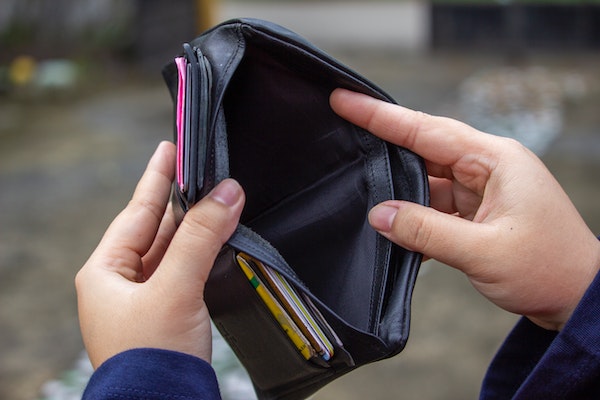We’ve all experienced the unpleasant surprise of checking our bank account balance and discovering it to be significantly lower than expected. It’s easy to lose track of where our money goes, but if you’re trying to pay off debt or save more effectively, it’s crucial to stop wasting money. Regardless of age or occupation, everyone is guilty of squandering money at times. To help you curb this habit, here are 11 ways to stop wasting money and improve your financial well-being.
1. Get Organized
Paying late fees on overlooked bills is a needless waste of money. Avoid this by prioritizing organization and setting up calendar reminders for bill due dates. Or, you can automate your bill payments to avoid the risk of unintentional late payments. By staying organized, you can ensure that your bills are paid on time, avoiding unnecessary fees and preserving your financial resources.
2. Pay Credit Cards in Full Every Month
Some individuals only make the minimum payment on their credit card bills. Our debt counselors strongly advise against this practice. Paying interest on credit card balances that could be paid in full is a waste of money. Strive to pay off your credit card balance in its entirety each month. Not only will this save you money on interest charges, but it will also help increase your credit score. This is another great benefit!
3. Use Cash Instead of Cards
Switching to cash when you’re shopping can make you more mindful of your spending. When you physically see the money leaving your wallet, you may be more hesitant to make unnecessary purchases.
4. Comparison Shop
Before making a purchase, compare prices from different retailers or online platforms. Take advantage of sales, discounts, and coupon codes. You’ll never know what you’ll find if you don’t look. So, spending a few extra minutes to find the best deal can lead to significant savings. We hope you can reap the rewards!
5. Embrace Home Cooking
Dining out and ordering delivery can be costly indulgences. If you find yourself eating lunch at a restaurant every workday, you may be draining your financial resources unnecessarily. Consider preparing your meals at home. Packing a homemade sandwich, salad, or leftovers from last night’s dinner can be just as satisfying as restaurant meals. Additionally, cooking at home allows you to make healthier food choices and have greater control over your dietary habits.
6. Cancel Unused Memberships and Subscriptions
Evaluate your memberships and subscriptions to identify any that have become redundant. Do you still have a gym membership despite rarely using it? Are you subscribed to magazines you no longer read? Go and cancel these services. Continuously paying for memberships or subscriptions you don’t use is an unnecessary drain on your finances. Once you cancel these expenses, you can redirect those funds towards more meaningful financial goals, such as debt management.
7. DIY Whenever Possible
Instead of paying for services you can do yourself, explore DIY options. Whether it’s home repairs, gardening, or basic car maintenance, learning and using these skills can save you money in the long run. Just be sure to familiarize yourself with these tasks ahead of time. Try looking up tutorials online, like on YouTube. This will help prevent DIY mistakes down the road.
8. Take Care of Your Possessions:
If you take the time to properly maintain and care for your belongings, you can extend their lifespan. Regular maintenance of appliances, vehicles, and other possessions can save you money on repairs or replacement costs. Therefore, be sure to check in on them!
9. Use ATMs Within Your Bank’s Network
Utilizing ATMs outside of your bank’s network often incurs additional fees. Therefore, opt for ATMs that belong to your own bank to avoid these charges. By proactively managing your cash withdrawals, you can minimize unnecessary expenses and retain more of your hard-earned money.
10. Invest in a Reusable Water Bottle
Buying bottled water can be a recurring drain on your finances. Instead, invest in a reusable water bottle to save money in the long run. By eliminating the need to buy bottled water regularly, you can make a significant difference in your budget.
11. Consider Cutting Cable
Evaluate your television viewing habits and ask yourself how many channels you really watch. If most of your preferred shows are on streaming services like Netflix and Hulu, consider cutting your cable altogether. Cable can be costly, and cutting this expense can free up funds for other financial priorities. Explore more affordable streaming alternatives instead. You could even find free streaming services like Tubi!
In Conclusion
By curbing wasteful spending, you can use that money on your goals instead. If you have credit card debt, you can put the money saved towards your payments. Cutting down on spending can also make it easier to stick to your budget and achieve your financial goals. Happy saving!
If you’re struggling to pay off debt, ACCC can help. Schedule a free credit counseling session with us today.






